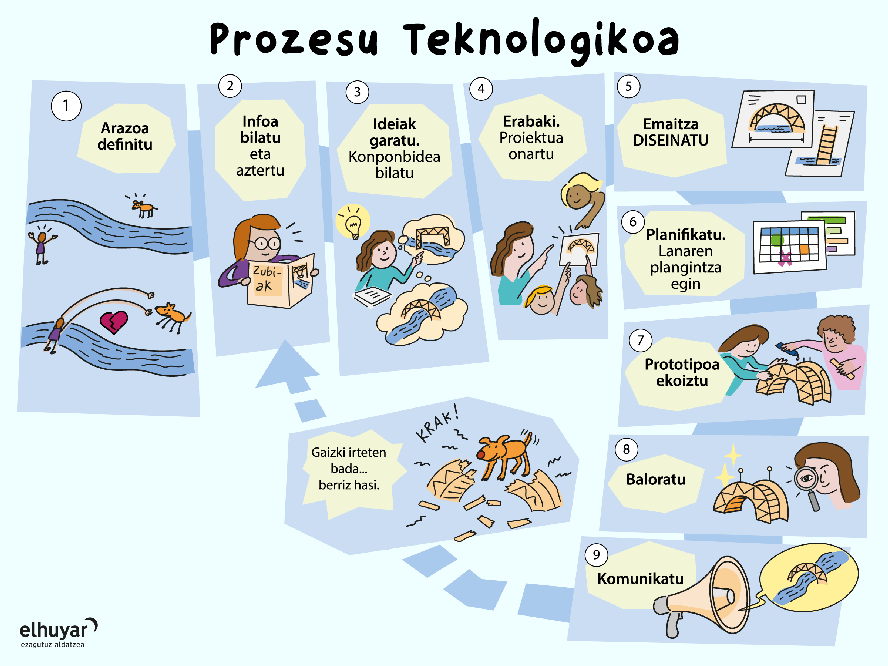Technological process
Text created by automatic translator Elia and has not been subsequently revised by translators. Elia Elhuyar
The technological process of the world of education mainly follows the following steps:
- Detect the problem or need: Identify the problem or need we want to solve.
- Search for information: Collect and analyze as much information as possible about what needs to be solved or satisfied. At this point it is important to acquire knowledge to develop the solution.
- Search for solutions: This step works with ideas to solve the problem.
- Project approval: Feasibility study to determine the costs, resources and means to be used in production. From this analysis the realization of the project is determined or not.
- Design the result: A prototype of what we are going to produce is made through drawings, sketches and schemes that will try to be as precise as possible.
- Planning work: The tools and materials to use, organizing and planning the division of labor are listed and compiled.
- Prototype production: In the business world the final product is produced. In education, students build the final prototype.
- Verification and evaluation: It allows us to know if the product works as planned and if it meets the expectations we had in the first phases. Check its utility and value. The product undergoes the evaluation of people outside the work team, taking into account its target audience.
- Communication: Communication of the good or service generated. Although these are cases in which patents are obtained and marketed, it is not about students developing skills.
To delve into the contents click here.






